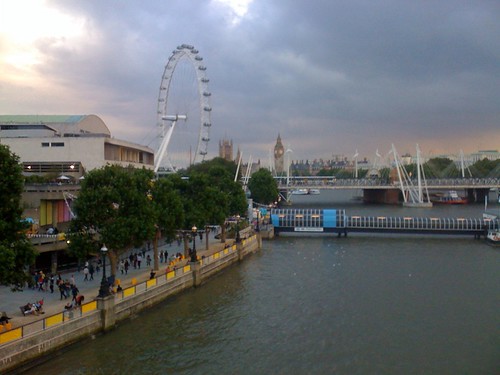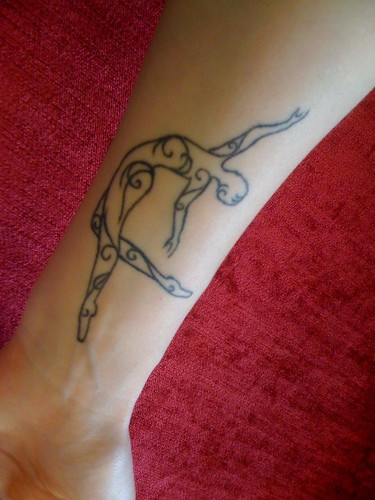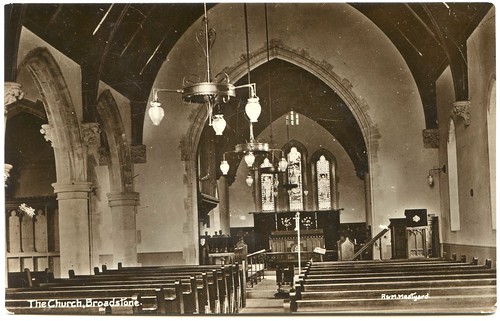I think I’ve experienced quite a lot of pain. I’ve had ballet teachers sit on my back to force me deeper into the splits; deep tissue massage on torn hamstrings. I’ve danced en pointe, with 40N/cm2 of force going through my toes, until they have bled. I’ve trapped a nerve in my hip and been woken up at 3am with cramp that feels like my left foot is trying to break itself in half. It once happened in the kitchen and I reached for the bread knife.
For as long as I can remember, I’ve had headaches nearly every day. Until my early teens I thought this was normal – low level pain in your head is just what happens from being alive. But once I became old enough to articulate my perceptions, I realised this frequency of pain would never be tolerated by someone who hadn’t experienced it all their life. I guess something chronic becomes normal after a while.
Once I had suffered three “ice pick” headaches age 16, I finally went to the doctor. Ice pick headaches do exactly what they say on the proverbial tin: they feel like a cruel, demented tormentor is driving an ice pick into my brain. They are excruciating, but mercifully last only three seconds (on average, for me). I reassure myself that it can’t be as painful as the contractions I might, one day, experience during labour. But I don’t know what labour feels like, so last night I asked people who do know how it compares to severe cramp, to create some sort of gauge.
But how do I know what it feels like to have an ice pick driven into my brain, really? Is what I feel as an ice pick being driven into my brain the same as what “Mike” in this case study feels? How do my ice pick headaches compare to the cluster headaches, nicknamed “suicide headaches”, that my friend Dawn endures? What is our language for comparing pain? Is it just comparing one type of pain to the other, like I tried to do on Twitter?
The Wellcome Trust-funded London Pain Consortium, which I sincerely hope has the internal name “House of Pain” and a mandatory afternoon coffee break where researchers Jump Around to escape the post-lunch slump, is looking into it. They will use hi-res fMRI and diffusion tractography imaging techniques to look at what is happening in the brain, both what it’s doing and where, during induced and existing pain. Though, rather than shoving a sharp, pointed object up someone’s nose, they will be using extract of chilli peppers to cause pain.
Image of neuronal tracts in the brain created using a type of diffusion tractography called diffusion tensor imaging. Credit: Nuada Medical/Wellcome Images.
The study looking at existing pain will compare diabetic neuropathy patients: those who have pain and those who don’t. Their existing anxiety levels will be measured to see if it contributes to pain. This is especially interesting. Maybe anxiety, and maybe anxiety specifically about pain, leads to worsened personal experience of pain? This is my particular hypothesis, not theirs, but it will be interesting to see where their research goes.
I should say that I’ve distilled the above explanation of their research from a rather jargon-filled summary and as I’m not a neuroscientist or the best science writer, I might not have done this very well. So two things: please correct me in the comments, and, London Pain Consortium: please put some decent public information on your website. Mun-Keat Looi wrote a feature that looks at their chronic pain research on the Wellcome Trust’s website and Barry Gibb produced this video for the same. But they shouldn’t rely on external science communicators to explain their work to a large swathe of the public (one fifth of Europeans suffer chronic pain) who are, like me, very interested to know what the House of Pain is getting down to.
*I addressed this question to “mothers” and later regretted it. I realise that women who now have children are not the only ones to have experienced labour contractions. They occur during abortion and miscarriage too. Twitter does not allow for much expansion and I wanted to address my tweet to someone to increase the chance of it being noticed and answered, but I did not mean to exclude anyone with first-hand experience of this kind of pain.







